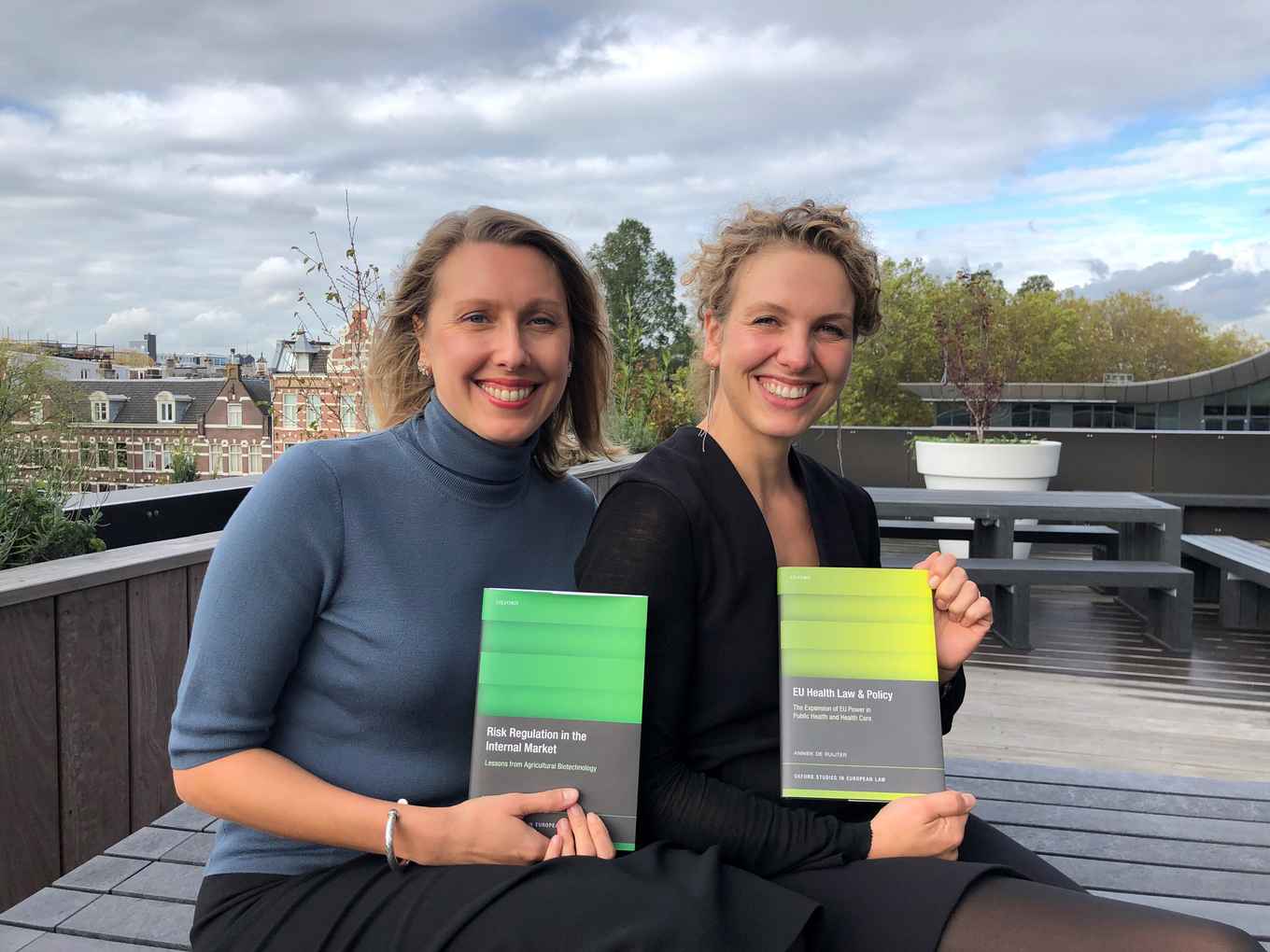Interview with Anniek de Ruijter and Maria Weimer on EU health law & risk regulation
Joint book launch event
17 October 2019

Anniek Hi Maria, pretty unique to be able to publish our books around the same time, both dealing with the role of the EU in very sensitive areas of EU policy in the field of human health and in your case also the environment. Just so we are on the same page, this interview should get people excited to come to our book launch and get our book, right?
Maria Hey, Anniek, yes, I think that is the idea. I remember our first project together, the edited book on EU risk regulation, and so I myself am excited about this event, which shows that we continue to walk on similar paths.
Anniek So, first things first, let's invite all our dear colleagues to come to our booklaunch and tell them what they will be missing if they don’t!
Maria Well, I am very happy we have a great chair, our colleague Nik de Boer, and that other fantastic scholars are joining to discuss both books: Tamara Hervey (Professor of European Union Law) Alessandra Arcuri (Professor of International Law) Floris de Witte (Associate Professor of European Law), and Gareth Davies (Professor Of European Union Law).
Anniek So tell us, what is your book about?
Maria My book has a message at two levels: in a narrow sense, it is about the EU’s failure to regulate agricultural biotechnology in an effective and legitimate way, making it one of the most polarised regulatory issues around the use of technology in modern agri-food systems; in a broader sense, it is about the way in which the internal market (its law and institutions) has contributed to that failure by narrowing the scope of EU regulatory responses to the risks arising from technologically enhanced intensive agri-food systems. Ultimately, I try to explain the paradoxes of contemporary EU risk regulation, like the uncertainty paradox. There has been a number of important contributions trying to do that, but the internal market perspective has fallen short so far. The book also includes the first comprehensive analysis of the recent re-nationalisation of EU policy on GMOs, which is quite a remarkable precedent in the otherwise almost sacred EU internal market. What’s your book about?
Anniek Well, in my book I ask what the implications are of the growing power of the EU in the field of human health. And with implications I mean either infringements or better protection of fundamental rights that are relevant to human health, such as the right to human dignity, informed consent or access to health care. I use both legal methods and also social science methods of case studies and expert interviews to better understand the growing power of the EU, even in the absence of legal competences in the field of health. In the end, I conclude that even in areas where the Member States have explicitly retained autonomy, EU health policy may have a deep impact in terms of the fundamental rights and values that underpin national health laws.
Maria So, in your book the growing role of the EU in human health is described as a ‘silent revolution.’ One of the people you interviewed said it pretty well: ‘its like grass, you don’t see it grow, but you cut it every week’. Interestingly, in my field, EU regulation of new technology and the public health and environmental risks stemming from it, the silence might be over. Just think of the recent glyphosate controversy, Monsanto papers etc.
Anniek Exactly. I think your book speaks to that very well, in that it outlines how today we arrived at a point where the EU’s ability to regulate public health and environmental risks particularly in highly controversial fields, like intensive agriculture and the agri-food sector, has become seriously limited because of the ‘silent’, ‘neutral’, seemingly ‘objective’ and ‘technical’ approach to policy making and science. It really shows us that seemingly technical regulation of the internal market affects highly sensitive issues, such as values and broader socio-economic issues (for example long term sustainability, re-distribution, social justice), and that it is very short-sighted to exclude those issues from the regulatory conversation. I think both books show that we need a new kind of politics (and of law) to address the various difficult questions that arise in this context.
Maria Yes, indeed, so much to discuss! Anyway, we will continue the conversation on the 28th. Looking forward!!
Anniek Yes, me too!
The book launch will take place on 28 October 2019 in room A7.23 at Amsterdam Law School, Nieuwe Achtergracht 166, Amsterdam.
For more information on the books visit the Oxford University Press website: